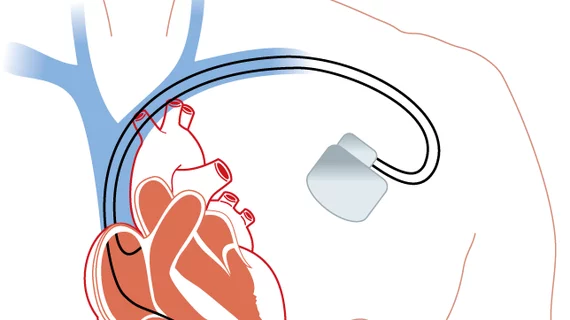3-step antibiotic strategy may reduce CIED infections
Administering antibiotics incrementally in the perioperative stage has the potential to modestly reduce infections related to cardiac implantable electronic devices (CIEDs), according to a study presented May 10 at the Heart Rhythm Society’s annual scientific sessions in Boston.
The American Heart Association/American College of Cardiology guidelines recommend a single IV dose of the common antibiotic cefazolin before an operation. But in this study—the first of its kind—Andrew Krahn, MD, and colleagues hypothesized that a three-step administration of multiple antibiotics could reduce device infections.
Approximately 400,000 CIEDs are implanted annually, according to a press release, and more than 3 million Americans currently have the devices.
Krahn et al. randomized 28 centers to provide treatment with either the conventional method or the incremental method of antibiotic administration. There were 9,627 patients assigned to the conventional arm and 9,976 assigned to the incremental arm, which involved pre-procedural cefazolin plus vancomycin, a bacitracin pocket wash during the procedure and two days of oral cephalexin after the operation. Both treatment arms contained similar numbers of low- and high-risk patients.
After a one-year follow-up, hospitalization attributable to device infection occurred in 1.03 percent of patients with conventional antibiotic treatment and 0.78 percent of those receiving incremental treatment. The relative risk reduction was 23 percent but didn’t reach statistical significance.
Among patients deemed high risk, the incremental strategy was associated with a 1.01 percent rate of infection versus 1.23 percent in the conventional group.
“Infections of these devices, while not very common, can have a long-lasting and devastating impact on patients,” said Krahn, the study’s lead author and the head of the cardiology division at the University of British Columbia. “It’s really important that we explore robust measures to prevent infections from occurring.
“Our results show that incremental antibiotics strategy can have a modest, positive effect when the infection rate is low. We hope that our study will help clinicians identify patients that may benefit from this treatment option and utilize a targeted, high intensive antibiotic strategy to reduce and prevent infections.”

